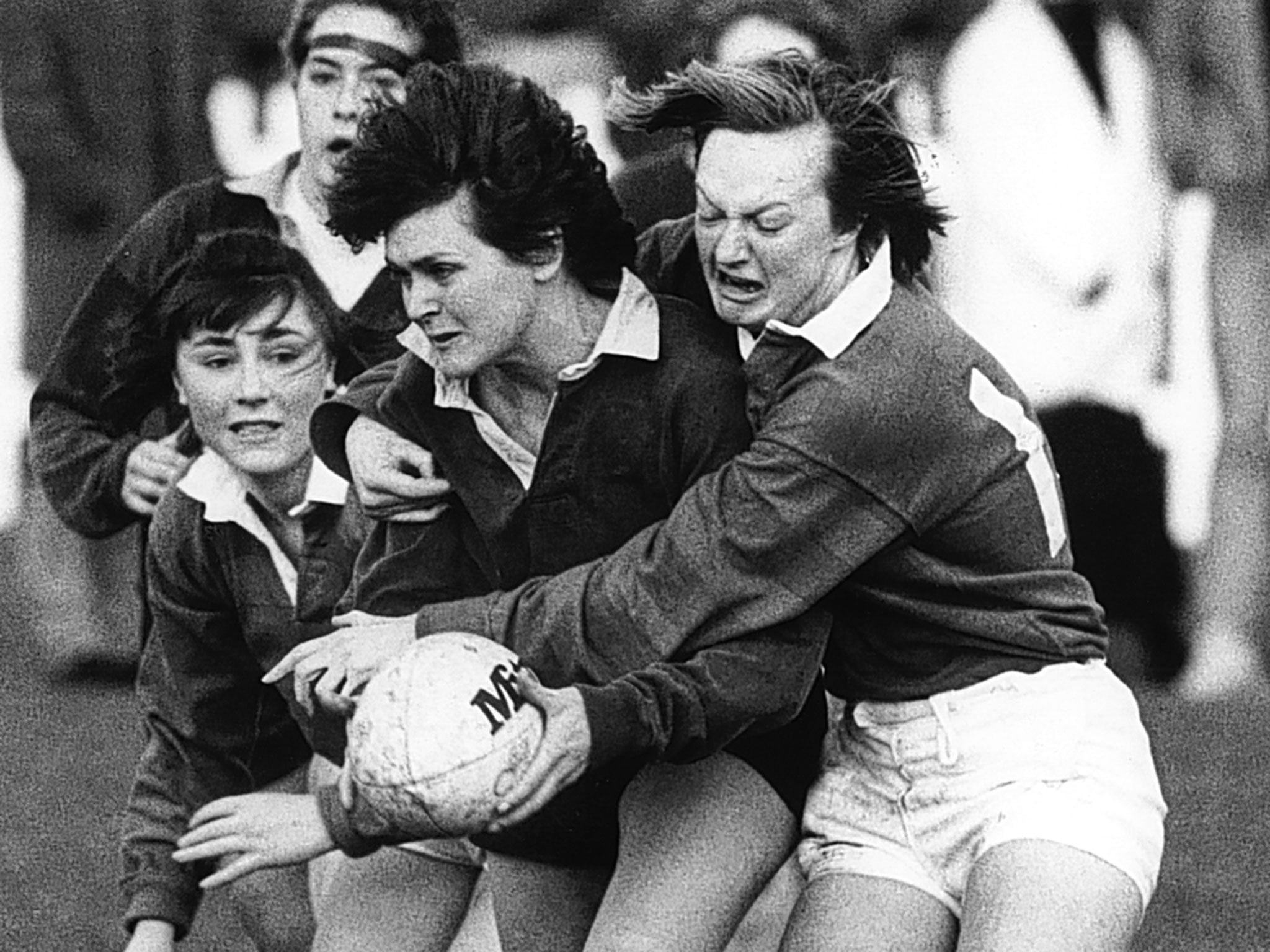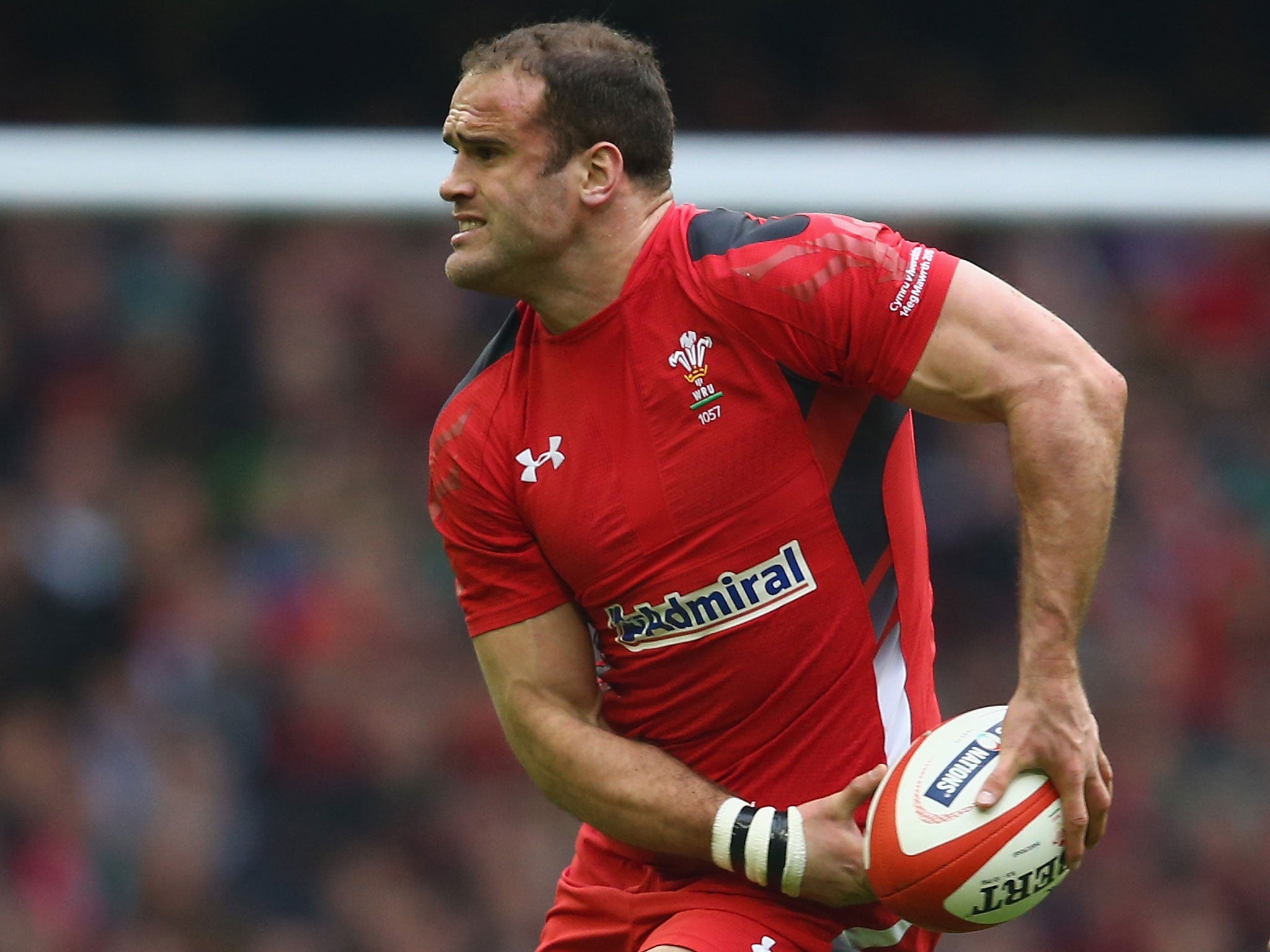The Varsity Match 2015: Pioneers get their day in the Twickenham sun
The Twickenham bow for the other university match is down to two remarkable women

Your support helps us to tell the story
From reproductive rights to climate change to Big Tech, The Independent is on the ground when the story is developing. Whether it's investigating the financials of Elon Musk's pro-Trump PAC or producing our latest documentary, 'The A Word', which shines a light on the American women fighting for reproductive rights, we know how important it is to parse out the facts from the messaging.
At such a critical moment in US history, we need reporters on the ground. Your donation allows us to keep sending journalists to speak to both sides of the story.
The Independent is trusted by Americans across the entire political spectrum. And unlike many other quality news outlets, we choose not to lock Americans out of our reporting and analysis with paywalls. We believe quality journalism should be available to everyone, paid for by those who can afford it.
Your support makes all the difference.The annual university match between Oxford and Cambridge may have slipped from the pedestal it once occupied in the English rugby union season but this year’s encounter does have added zip, not least because Jamie Roberts, the Wales and Lions centre, will be wearing a Cambridge shirt as his side seek to prevent their opponents setting a new record for successive wins.
But while the men’s game will claim most of the headlines, it will be preceded in the morning by a small but, in its way, seismic step in the history of women’s rugby union. Because when Nikki Weckman, the Canadian captain of Cambridge, and Carly Bliss, her Oxford counterpart, lead out their teams for the 29th women’s university match, they will do so at Twickenham for the very first time.
And when they do, two women sitting in the stands at Twickenham, that bastion of male tradition, will look at each other, smile and exchange memories. Those two are Heather Lawrence (née Bunting) and Sophia Mirchandani (née Pegers), and it was only because of their determination that the first rugby match between women at the two universities took place at all, in 1988.
Back then Lawrence was a postgraduate student at St Hugh’s in Oxford and also the possessor of a car which, in 1987, had transported her and several others to a cricket match in Cambridge. There, falling among like-minded women at a pub (whose name history does not record), a challenge was laid down to play a rugby game between women representing the two universities.
There was, of course, no women’s rugby at either university at that time and, indeed, not much women’s rugby union anywhere. Only six years earlier the first-ever international had been played between France and Holland and, in 1983, the baby steps were taken by a governing body in England, the Women’s Rugby Football Union.

But it was not a complete desert. Oxford Old Boys had started a women’s section, while Lawrence had toured with a side that included Karen Almond (then by a distance the best female player in England), and she started asking girls watching men’s games at Iffley Road if they would like to try playing.
At much the same time, the then Sophia Pegers became involved in conversation at Robinson College’s bar in Cambridge about forming a women’s team. “We were all great fans of the game and thought we’d love to have a go,” the now 48-year-old recalled recently. “It was all word of mouth, friends of friends, people who watched the men’s game; we played on college grounds or park grounds.”
There was little or no official support. Boyfriends helped with training – Victor Ubogu, the England prop then at Oxford, lent a hand – and when the day of the match dawned, Oxford showed up with a narrow win over Southampton University to their credit, while Cambridge had just been “slaughtered” by Hull.
“I didn’t think about where it might go, or even if it would carry on,” Mirchandani, who led Cambridge from No 8, said. “We were doing it because we wanted official recognition.”
The first try in this groundbreaking contest went to the Cambridge wing Barbara Skelly, the second to Oxford’s Anna Spash, who then left with a head injury. “I found a medic hiding in the bar who said he couldn’t stitch her, she was far too beautiful,” Lawrence said. The game was decided when Mirchandani scored from a close-range scrum to give Cambridge an 8-6 victory, this being in the days of the four-point try.
“We were playing to win but, having lost, I wasn’t sick as a parrot, I was just stunned we had pulled it off,” Lawrence, who is now 53, recalled. “I remember a couple of years later feeling quite proud that the game was continuing, that they were playing 15-a-side college games. We had had a great game, we each had a team, that was my overriding memory.”
Having taken an undergraduate degree in chemistry, she switched to law and became the first woman barrister in her London chambers. Mirchandani, having studied archaeology and anthropology, became a consultant to the heritage sector but, in a sporting sense, the legacy of both women will be seen on Thursday.
The thriving women’s game – both teams play in the British Universities and Colleges Sports League, for the first time together in Premier South – extends into college rugby, and full Blues are awarded (though at Cambridge there is a discretionary element depending on league form).
Women students are part of a fully integrated Cambridge University RUFC and the final constitutional amendments at Oxford for the same process will be completed in May next year.
Danielle Waterman, an England international who first played at Twickenham for UWIC against Loughborough, knows exactly how Thursday’s teams will feel: “Women in sport and women in business are getting together,” she said, “and the values in sport, the team spirit, the discipline, are key for women in leadership programmes.”
The Varsity Graduates
So many of the modern trappings have found their way into the women’s game: Oxford have done their own version of Calendar Girls for charity this term, a choir called University Voices has recorded a Christmas song, and both teams have been advised what to expect of the occasion by Danielle Waterman, who was England’s full-back when they won the World Cup last year. Oxford have gone one step further by working with Gary Street, who was England’s World Cup coach, in their preparations.
Join our commenting forum
Join thought-provoking conversations, follow other Independent readers and see their replies
Comments